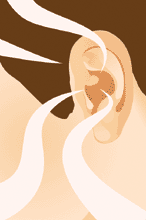| Magazine Home I Links I Contact Us |
|
Home |
What Is Perception?
Before one can learn anything, perception must take place, i.e. one has to become aware of it through one of the senses. Usually one has to hear or see it. Subsequently one has to interpret whatever one has seen or heard. In essence then, perception means interpretation. Of course, lack of experience may cause a person to misinterpret what he has seen or heard. In other words, perception represents our apprehension of a present situation in terms of our past experiences, or, as stated by the philosopher Immanuel Kant (1724-1804): “We see things not as they are but as we are.” The following situation will illustrate how perception correlates with previous experience: Suppose a person parked his car and walks away from it while continuing to look back at it. As he goes further and further away from his car, it will appear to him as if his car is gradually getting smaller and smaller. In such a situation none of us, however, would gasp in horror and cry out, “My car is shrinking!” Although the sensory perception is that the car is shrinking rapidly, we do not interpret that the car is changing size. Through past experiences we have learned that objects do not grow or shrink as we walk toward or away from them. You have learned that their actual size remains constant, despite the illusion. Even when one is five blocks away from one's car and it seems no larger than one's fingernail, one would interpret it as that it is still one's car and that it hasn't actually changed size. This learned perception is known as size constancy. Pygmies, however, who live deep in the rain forests of tropical Africa, are not often exposed to wide vistas and distant horizons, and therefore do not have sufficient opportunities to learn size constancy. One Pygmy, removed from his usual environment, was convinced he was seeing a swarm of insects when he was actually looking at a herd of buffalo at a great distance. When driven toward the animals he was frightened to see the insects “grow” into buffalo and was sure that some form of witchcraft had been at work. A person needs to interpret sensory phenomena, and this can only be done on the basis of past experience of the same, similar or related phenomena. Perceptual ability, therefore, heavily depends upon the amount of perceptual practice and experience that the subject has already enjoyed. This implies that perception is a skill that can be improved tremendously through judicious practice and experience.
|
| Home A B C D E F G H I J K L M N O P Q R S T U V W X Y Z |